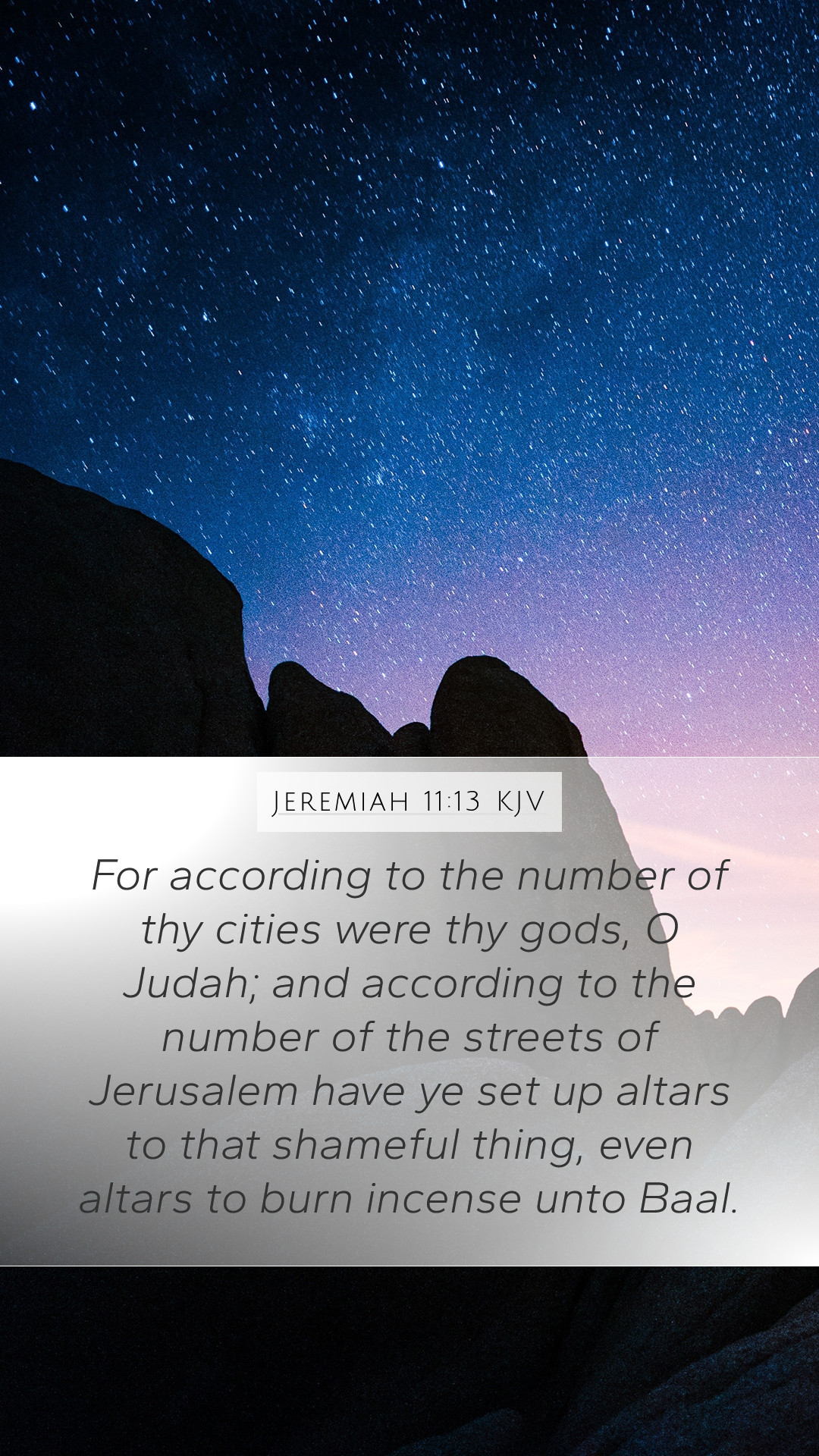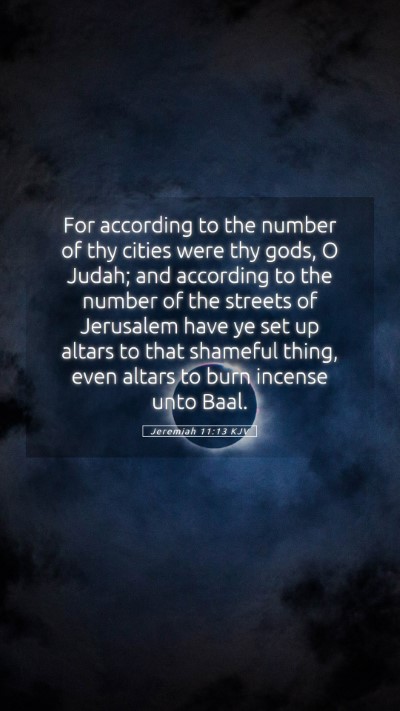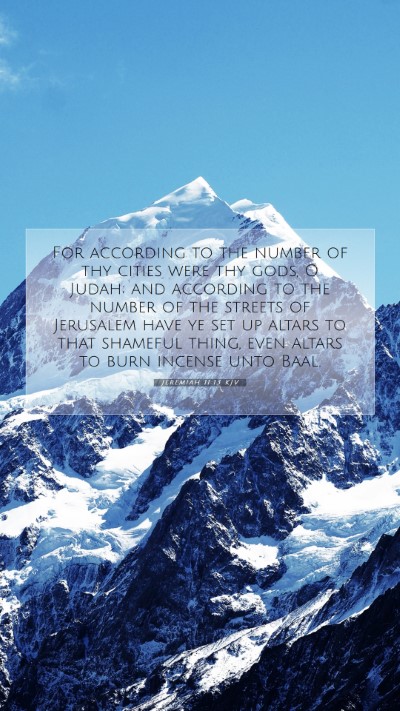Understanding Jeremiah 11:13
Jeremiah 11:13 states:
"For according to the number of your cities were your gods, O Judah; and according to the number of the streets of Jerusalem have ye set up altars to that shameful thing, even altars to burn incense unto Baal."
This verse is a call to reflect on the idolatrous practices that Israel was engaging in, particularly in their worship of Baal. Below is an in-depth explanation drawn from various public domain commentaries.
Bible Verse Meanings Explained
This part of the scripture addresses how the people of Judah had replaced their worship of the one true God with the idol worship of Baal. It signifies the depth of their transgression against God.
Key Themes from Commentaries
- Idolatry in Judah: Matthew Henry highlights the sheer number of idols and places of worship the people established, indicating their abandonment of true worship.
- God’s Displeasure: Albert Barnes details how God expresses His discontent with the Israelites' actions, showcasing His jealousy for their devotion.
- Historical Context: Adam Clarke emphasizes the historical significance, noting that the altars mentioned reflect the culture of the time where multiple deities were commonly worshiped.
Interpretation of Scripture
The essence of Jeremiah 11:13 reveals God's message about the futility of idol worship and its damaging consequences on the relationship between the Israelites and their Creator.
Significance of the Verse
This verse serves as both a historical record and a spiritual lesson by illustrating how easily the people can turn away from God, which remains relevant today.
Bible Study Insights
- Application to Daily Life: The call to eliminate modern 'idols' (anything that takes priority over God) is particularly crucial for personal faith.
- Relational Context: It encourages believers to evaluate their own lives and ensure their devotion is centered on God alone.
Commentary Highlights
Henry suggests that the people’s guilt is compounded by their choice to worship man-made entities rather than the divine entity that saved them.
Barnes points out that the phrase 'according to the number of your cities' was a rhetorical method illustrating that every city had its own idol—a marker of complete disobedience to God.
Clarke articulates that the mention of Baal represents a broader spiritual decline that the Israelites were undergoing, urging readers to understand the historical significance behind such worship.
Cross References
- Exodus 20:3: "Thou shalt have no other gods before me."
- Deuteronomy 6:14: "Ye shall not go after other gods, of the gods of the people which are round about you."
- 1 Kings 18:21: "How long halt ye between two opinions? If the Lord be God, follow him: but if Baal, then follow him."
Conclusion
Jeremiah 11:13 encapsulates a warning against idolatry, urging believers to evaluate their devotion and accurately understand the consequences of their choices. Drawing from rich biblical commentary, this verse invites all to engage in further Bible study insights that explore Bible verse interpretations and understanding Scripture deeply.
In summary, this deep dive into the verse empowers individuals in Bible study groups or those conducting online Bible study to grasp the essential messages embedded within Scripture.


